Jesus the Jewish Theologian – a book critique
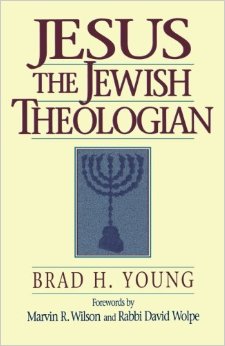
Bibliography:
Young, Brad. Jesus the Jewish Theologian. Grand Rapids, Mich.: Baker Academic, 2011, ©1995
Author Background:
Bradford Humes Young, also known as Brad Young, is a professor of Biblical Literature in Judeo Christian Studies at the Graduate Department of Oral Roberts University (ORU). He is also founder and president of the Gospel Research Foundation, Inc.
After receiving his B.A. from ORU, Young departed Tulsa for Israel. At the Hebrew University of Jerusalem, he pursued graduate studies in early Christianity and ancient Judaism. During that time he lectured at the American Institute of Holy Land Studies, served as Research Assistant to Prof. David Flusser, and earned two degrees, an M.A. and Ph.D. from the Hebrew University. He is one of the founding scholars of the Jerusalem School of Synoptic Studies, working closely on Gospel research with Flusser and Dr. Robert L. Lindsey. He has contributed to scholarly journals and has spoken at many academic, church, interfaith, and civic gatherings.
Content Summary:
In this book the author introduces Jesus, the Jew, as a theologian, with more depth and insight into the things of God, than even the apostle Paul. His premise, is that the Western view of the gospel in many cases has strayed from its clearly Jewish roots, that Jesus taught the principals of His Kingdom, uncluttered with traditions such as Christmas, Easter, or other traditional Christian events. Jesus was raised in Torah, as a traditional Jew during the second temple period.
“Jesus must be understood as a Jewish theologian. His theology is Jewish to the core. The tragic history of the relationship between Judaism and Christianity, makes it extremely to hear his forceful voice. The attacks of the church against the synagogue have stripped Jesus of his religious heritage. As Christians we have been taught wrong prejudices about Jews and Judaism. Hatred for the Jewish people has erected a barrier separating Jesus from His theology. Ethnically he may be considered a Jew, but religiously he remains a Christian who failed to reform the corrupt religious system of the Jews. Such an approach fails: Jesus is Jewish both in his ethnic background and in his religious thought and practice.”(xxxiv)
This critique will look at the authors success in fulfilling this premise, and more importantly for this author, the impact of this research on the Christian theology practiced, in light of the truth the historic, actual Jesus taught. In the mind of this reader then, it is a search for the deeper things of God, a search for truth, whatever the consequences of these truths might produce both personally, and in future ministerial endeavors.
The book is delineated into five main subdivisions, each of which bring historic light and truth to many areas of standard Christian understanding and practice.
These divisions are:
1. The Messianic Drama of Jesus Life Events – The author brings the reader into several arena’s of Jewish thought – they were expecting a Messiah, and by His very literal fulfillment of Messianic prophecy and action, Jesus life became a fulfillment of what Messiah had to be.
- The Jewish Roots of Jesus Kingdom Theology – Chapters 5-11- In the Jewish Shema, any orthodox Jew submits to the Lordship, or kingship of God in their life. In this section the author shows the kingdom of God alive and active in the earthly ministry and theology of Jesus, violently breaking forth through John the Baptist, illustrated through his parables, through the Jewish understanding of rabbis being peacemakers, both between men and God, and amongst themselves. He then shows us the beautiful simplicity of the kingdom revealed through simple childlike faith, in their sense of awe and wonder. He then uses the Sabbath, as an entry point to discuss the difference between the letter and the spirit or intent of the law – Jesus did not break the Sabbath, He fulfilled it, for the Sabbath was given for man, not man for the Sabbath. The author touches on the heart of Jewish understanding of the difficult topic of divorce and adultery, and Jesus instruction, or intention here, and completes this discussion of the kingdom among us, with the giving of thanks, as a way of life.
- The Jewish Theology in Jesus Parables – Here the author presents some animated thought in the grace seen through Jewish culture and tradition in the teaching of Jesus parables, a very beautiful look at the parable we call the prodigal son, the ‘old wine’ of Torah, friends and enemies seen in parables, and Chutzpah! This speaks boldly to this reader – that which I call ‘the spirit of faith’. (https://www.chrisaomministries.com/2017/02/18/the-spirit-of-faith-5/)
- The Jewish Messiah and the Politics of Rome – In this section, we are introduced to the foundations of the kingdom – the introduction to the deeper discussion provoked by Jesus simple two questions posed to Peter in Matt 16:18 – ‘Who do men say I am?’ and more importantly for Peter, and you and I, ‘Who do you say I am?’. The author then looks at the mystery of the transfiguration, challenging the thought that the appearance of Moses and Elijah there was not Jesus literally fulfilling the law (Moses) and the prophets (Elijah), as I have always taught, rather that they appear to fulfill their commissions as two prophets, the prophets of salvation (208). We then dig into the investigation of the Son or the Vineyard in what is commonly called the parable of the Vineyard, to refute common anti-Semitic teaching from the main-line Christian church. In the final chapter in this section, the author addresses the question: ‘Who really killed Jesus?’, Rome, or the Jews? He argues persuasively that since Rome held the power to execute, and aggressively stomped any leader that might rally the Jews and rebel against Roman rule, that Pilate was far more guilty of Jesus death, than the traditional Christian teaching of blaming the Jews solely.
- The Future Messiah – Son of Man? Is Jesus human or divine? The focus here is as Jesus, as Messiah, revealed as the son of man.
Evaluation
The first four chapters of the text discuss the Messianic nature of Jesus life and ministry. The author speaks of how Jewish scholars might view the song of the angels sung at Jesus birth. He argues that a distinction must be made here between ‘men of goodwill’ and ‘goodwill to all men’ and that the latter is the correct translation. God’s will is the highest and best for not only the Jew, but for all humanity, for God is good, kind and merciful.
What is find very interesting in this chapter is thoughts of how this threefold declaration given to us in Luke 2:14, immediately draws my thoughts to the Trinity, and the parallel made to Is 6, even more so.
One – The Birth of the Messiah and the Song of the Angels
In researching Luke 2:14, the author clearly shows how the distinction of translation must be made from ‘goodwill towards (all) men’ vs ‘to men of goodwill’, arguing that the birth of the Messiah is good news to all of humanity, not merely to those attempting to do right before God. We see this angelic song then, in three parts: 1. “Glory to God in the Highest” 2. “On earth peace” 3. “Goodwill towards men” (7)
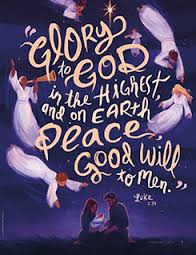
The author documents this song of the angels at the birth of Jesus, as being similar to the text of Is 6:3, when the angels before the throne of God cry out “Holy, Holy, Holy, is the Lord of hosts: the whole earth is filled with his glory.” . He notes how Flusser has compared the threefold song in Luke 2:14, with insight from the Aramaic Targum describing the ancient Jewish understanding of Isaiah’s text that remarkably parallels Luke 2:14.
Again a three part structure is seen: 1. “Holy is the highest heaven, the house of his presence.”
- “Holy upon the earth, the work of His might”
- “Holy for endless ages, is the Lord of hosts: the whole earth is full of the brightness of his glory.” (8)Could this three-fold interpretation again refer to the Trinity?
Like the often taught interpretation of Genesis 1:26
Then God said, “Let Us make man in Our image, according to Our likeness; and let them rule over the fish of the sea and over the birds of the sky and over the cattle and over all the earth, and over every creeping thing that creeps on the earth.
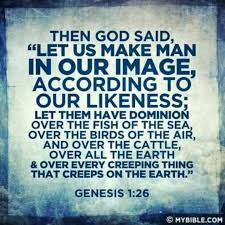
“When used of the true God, “Elohim” denotes what is called by linguists a plural of majesty, honor, or fullness. That is, he is GOD in the fullest sense of the word. He is “GOD of gods” or literally, “ELOHIM of elohim” (Deut 10:17; Ps 136:2)”[1]
God the Father revealed in the first ‘Holy’, in the highest heaven, in the house of His presence. Holy Spirit, Emmanuel, upon the earth, revealing His might and Jesus as captain of the Lord’s host, the whole earth revealing the brightness of His glory.
Some years ago, this author participated in a large worship service, with a well known minister. As we sung the familiar chorus of ‘Hallelujah’ repeatedly, the minister read Is 6, and claimed to actually see these angels forever circling the actual throne of God in worship. That as they worshipped, they sang their first ‘Holy’ to God the Father, their second ‘Holy’ to God the Son, and their third ‘Holy’ to God the Holy Spirit, and as they again sang: God, who is infinite, gave to them yet another facet of His beauty, greatness and majesty that they had never seen before, causing them to fall again at His feet, and cry “Holy, Holy, Holy”. This bore witness to me as I have groped for understanding of the Trinity over the years, and has stuck with me (perhaps subjectively) from the depth of the presence of God clearly present in that particular service.[2]
I agree with the author’s conclusive research here: God is good, and through Jesus, His goodwill is expressed to all men.
Chapter Two – the Baptism of Messiah – The presentation of Jesus and discussion of the Dove
In Western thought, we often use the text in Luke 3:21-22 as a proof text of the doctrine of the Trinity. In this book however, the author takes us into ancient Jewish thought, comparing this event with Ps 2:7, explaining the Jewish concept of ‘the presentation of the Messiah’. While the doctrine of the Trinity is not in question, we are studying the historical Jesus here, Jewish Jesus, Messiah, the fulfillment of Torah. Clearly, then, this is a better translation of the thought intended in the spirit of the text: Messiah has come! During baptism, he is presented, announced by heaven! To the Jew, longingly awaiting the coming of Messiah, this must have been a tremendous experience as God’s anointed was confirmed by heaven, publically!
The author then begins a discourse on the dove, in Jewish thought, and clearly shows that mention of the dove does not always refer to the Holy Spirit as traditional Western thought declares. Sometimes it refers to the nation of Israel (20, note 14, Ex 14:9-14)
The Jewish thought of ‘bat kol’, the echo, or daughter voice of God, was likened to the sound of chirping or cooing of a dove. (19, note 12)
This Jewish thought adds much depth and beautiful thought to the voice of God echoing from heaven at the baptism of Jesus, with the presence of the dove.
Though the author does not mention it, one cannot help but think about the dove of Genesis 8:11
‘The dove came to him toward evening, and behold, in her beak was a freshly picked olive leaf. So Noah knew that the water was abated from the earth.’
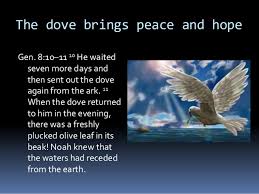
Here we see this verse depicted often, of God’s everlasting covenant towards men, through Noah, His goodness and mercy expressed to all humanity, through the beautiful picture of a dove with a fresh picked olive leaf in her beak. Could it be right to infer from this verse, and the reference of the author to Israel being the dove, or perhaps even the olive branch, that through Israel and the Jewish people, God offers peace and mercy towards all the earth and the people who live upon it?
Genesis 18:18 since Abraham will surely become a great and mighty nation, and in him all the nations of the earth will be blessed?
Chapter Three – The Temptation of Jesus –
In this chapter the author brings the Jewish perspective of Jesus temptation, reminding us of Deut 8:2-3, where the children of Israel were tested by God in the desert. Clearly, the testing of Jesus was real, and in his humanity, He passed! (29)
Chapter 4 – Miracles, Proclamation, and Healing Faith – Clearly Jewish people believe in miracles, and divine healing. The Scriptures are full of the accounts of Moses, Elijah, Elisha performing healing miracles and demonstrating the power of God over weather. The Jewish scholar speaks of ‘Charismatic Judaism’ and we are give the beautiful account of Abba Chilkiah, the grandson of Choni the circle drawer, as also being given the gift of answered prayer for rain. He is a humble man, and to avoid drawing attention to himself, claims it was his wife’s prayers that were answered miraculously, not his own.( 36,37)
In the Scripture, we see rain as a blessing from God in many cases. [3]
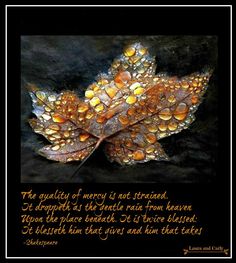
Deut 11:14 “I will send rain on your land in its season, both autumn and spring rains, so that you may gather in your grain, new wine and oil.”
Is 45:8″Drip down, O heavens, from above, And let the clouds pour down righteousness; Let the earth open up and salvation bear fruit, And righteousness spring up with it. I, the LORD, have created it
Hebrews 6:7 For ground that drinks the rain which often falls on it and brings forth vegetation useful to those for whose sake it is also tilled, receives a blessing from God;
Job 5:10 “He gives rain on the earth And sends water on the fields.
Jer 14:22 Are there any among the idols of the nations who give rain? Or can the heavens grant showers? Is it not You, O LORD our God? Therefore we hope in You, For You are the one who has done all these things. Are there any among the idols of the nations who give rain? Or can the heavens grant showers? Is it not You, O LORD our God? Therefore we hope in You, For You are the one who has done all these things.
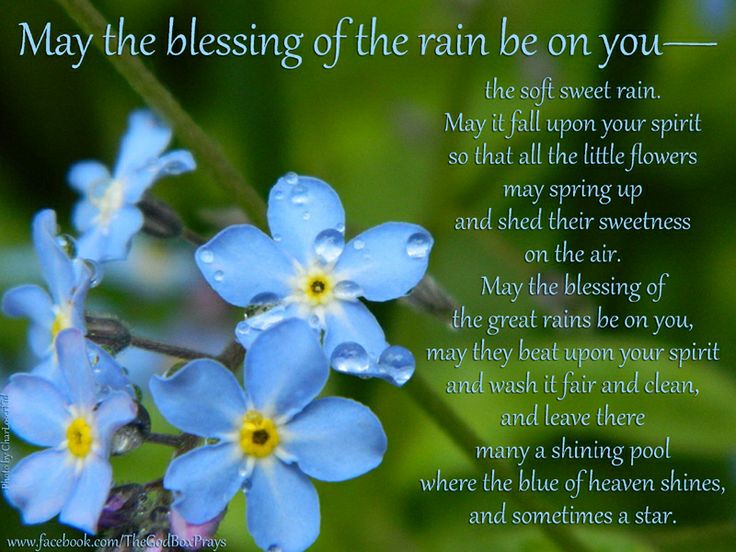
As we have travelled to Native American lands, we have seen supernatural rain occur many times as a direct answer to prayer, with rainbows often appearing over revival tent meetings, that we interpreted as God Himself smiling upon our events.
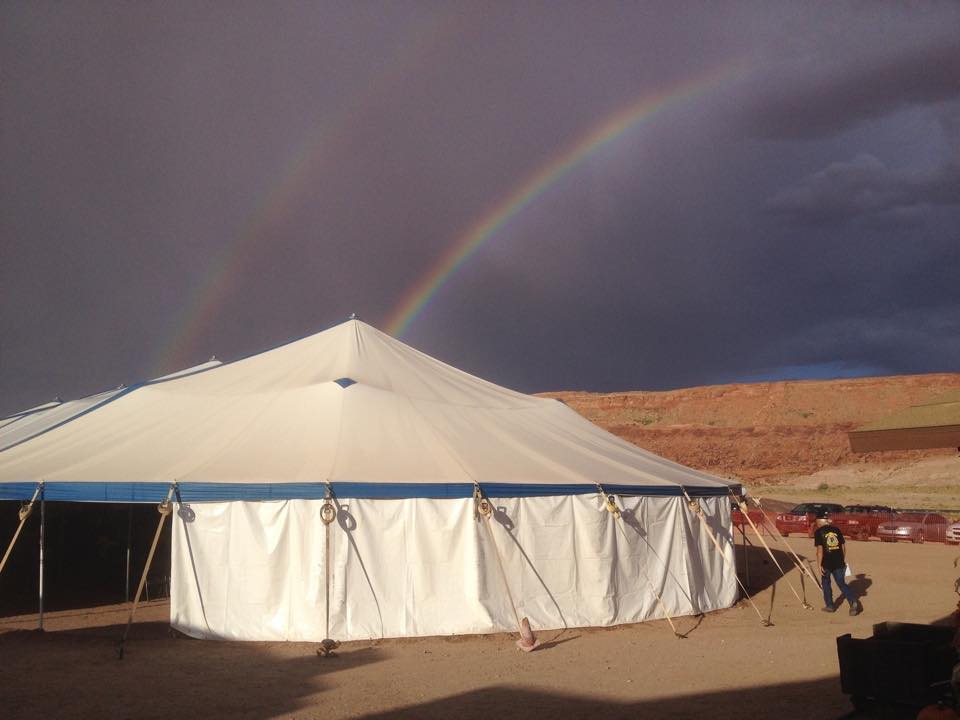
More recently, during the inauguration of President Trump, a gentle rain began to fall. Franklin Graham rightly interpreted this as God’s blessing on this particular land, we call the United States of America.
Is it any wonder then, that almost every Native American tribe has fallen in love with Israel, and that yesterday, with President Trump meeting with Prime Minister Netanyahu and pledging US support for Israel, that we experienced a gentle rain, watering the earth?
The chapter in the book, outlining marriage and adultery from both the Jewish background, and in Jesus further teaching on the topic is wonderful as far as it goes, yet as I have attempted to understand the various Christian denominational positions on the difficult topic of Biblical divorce and remarriage, it would seem that a deeper study of this important topic would be critical for my own understanding. Clearly, the Jewish culture has some clear process for this event that might provide a firm pillar as the other positions denominationally taught are more fully researched.
Chapter 20 introduces a challenge to traditional Christian interpretation of Jesus parable of the wicked husbandman (215). It appears the author has written another book on the parables of Jesus, that just got bumped on to my ‘required reading’ list, as a topic for further research, for this simple reason: I love Israel and the Jewish people. I have been to Rwanda, and have visited the genocide memorial there, and seen artifacts and film footage of the Holocaust, and the anti-Semitic cries of the Nazi murderers, calling the Jewish people ‘Christ Killers!’. The heartbreak is, this is not unlike the damnable heresy called, ‘apartheid’ that caused untold suffering in South Africa, or the teaching of ‘manifest destiny’ taught here in America that caused the genocide of the large majority of native Americans living here at the time. These atrocities were performed in the name of the Christian religion, and were taught first to people by supposed Christian ministers! This is far from the heart of Jesus the Jew.
In conclusion, I believe the author did an excellent job in presenting the true historical Jesus, fully Jewish, and introducing to us the need to more fully understand the theology of Jesus from a Jewish standpoint.
[1] http://www.hebrew-streams.org/works/monotheism/context-elohim.html
[2] Benny Hinn miracle crusade.
[3] http://www.egrc.net/articles/Rock/LivingWater/BlessingOfRain.html
https://www.chrisaomministries.com/2016/08/06/the-purpose-of-this-blog/

